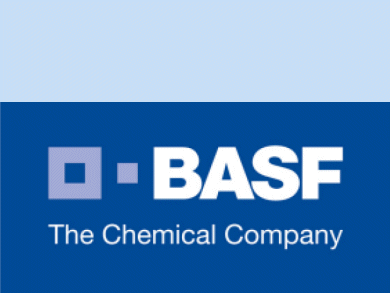Many car drivers ask themselves: “Frost protection agent, radiator protection agent, antifreeze – isn’t it all the same?”
“Not at all,” warns Mike Freche, brand manager for Glysantin® at BASF. “Radiator protection is much more than just frost protection, which is all that products with lesser quality provide – if you are lucky!” This is because a quality coolant such as Glysantin® from BASF provides comprehensive protection against rust, overheating and frost all year round. The decisive constituents in Glysantin® are the so-called corrosion inhibitors. They combine with the metals in the cooling system and form a very thin but extremely strong protective coating on the surface – giving rust no chance to develop.
Anyone who resorts to cheap frost protection products should be aware of the risks, emphasizes Freche. If, for example, these products lack corrosion protection, the metal components of the cooling system, such as the radiator, the water pump, the crank case and the cylinder head, can become damaged. The corrosion particles that are produced will then gradually block the narrow radiator passages and reduce the cooling power thereof. The engine can quickly overheat, which can have dire consequences. The gaskets are also affected, and will wear much more quickly. In the worst case the vehicle may break down with expensive engine damage.
Cheap products often just consist of glycol, water and coloring. To a layman, the liquids look no different from the premium product. If such coolants are not approved by car manufacturers, the makers of these antifreezes frequently use expressions like “complies with …” followed by the name of a branded product or a test that only experts are aware of. Or they say that the antifreeze can be used universally in many different vehicle models “These antifreezes have often not undergone any tests or material testing whatsoever,” complains Freche.
This is because the test series that are carried out by car manufacturers for approval are complicated and expensive. The radiator protection agents are subject to strict quality requirements. Before a product is approved, it has to pass an average of 30 different tests. For example, these tests include corrosion testing, compatibility tests with original components, testing on the engine test stand and fleet testing. The coolant is not approved by the vehicle manufacturer unless it has passed all of the tests. Glysantin® always attains top marks in all of these areas, and has the most approvals of any such product in Europe.
Anyone who only looks at the price of coolant and not the quality is doing themselves no favors whatsoever. Many car drivers are now aware of this – it’s not for nothing that Glysantin® is the original and Europe’s best-selling radiator protection agent. Detailed information about Glysantin® can be found on the Internet at www.glysantin.de.
About Glysantin®
Glysantin ®, the original from BASF, is Europe’s largest selling engine coolant. The products in the Glysantin ® range reliably protect engines all year round from corrosion, frost and overheating, even under extreme climatic conditions. BASF first patented Glysantin ® in 1929, and the coolants from Ludwigshafen have been very popular with motorists ever since. The proprietary products have the most OEM approvals from the large motor manufacturers. BASF works in cooperation with leading automobile suppliers to ensure that the Glysantin ® range always fulfils the latest demands. The high-performance engine coolants from BASF are suitable for use in all motor vehicles. Further information about Glysantin® can be found on the Internet at www.glysantin.de.




